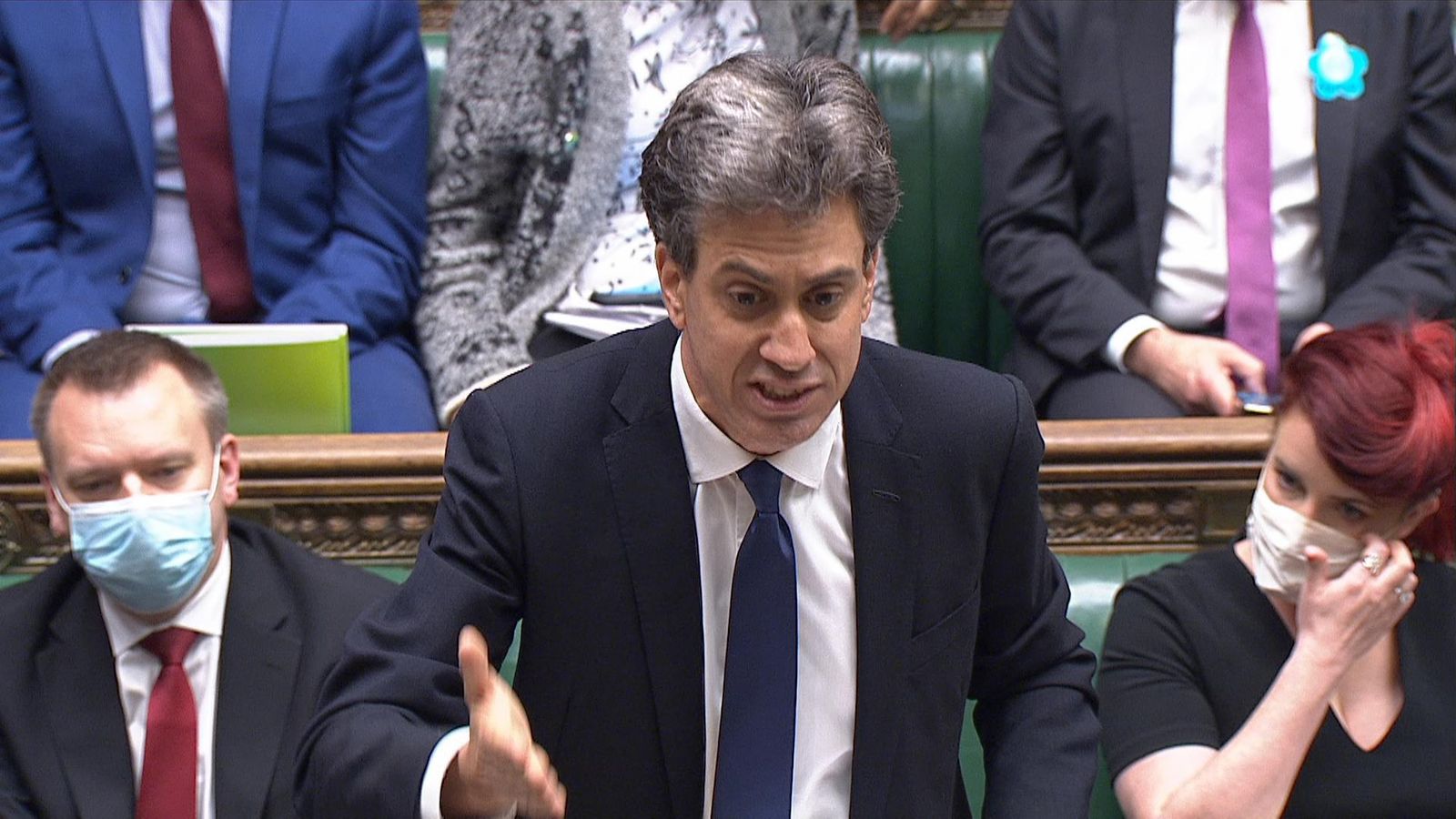Rishi Sunak’s budget offers an “age of stagnation” not optimism and contained a “stealth raid” on living standards and the self-employed, Ed Miliband has said.
The shadow business secretary said the chancellor’s budget, announced on Wednesday, fails to tackle the cost-of-living crisis and under the Conservatives there has been 11 years of “low growth, stagnant wages, falling living standards”.
Opening the second day of the budget debate, Mr Miliband told the Commons: “It’s less than 24 hours since the budget was delivered and it’s already unravelling because of the chasm between the claims of ministers and the reality that working people face.
“To listen to the chancellor yesterday it’s clear he is living on a totally different planet.
“He told us he’d deliver an age of optimism. But when you take off the Instagram filter all he offers is an age of stagnation.
“Low wages, low growth, high taxes, more lost Tory years.”
He also told MPs the budget was a “raid upon the living standards of working people” and that there were council tax hikes hidden in budget documents that were not announced by Mr Sunak.
Budget 2021: Middle-income earners ‘likely to be worse off next year’, Institute for Fiscal Studies says
Budget 2021: Chancellor Rishi Sunak to face questions after vowing to build ‘stronger economy’
Budget 2021: Government targets top 30 developers in £2bn cladding tax raid
There was also a “stealth raid” on the self-employed of £1.7bn over the next five years that was not announced, he claimed.
Mr Miliband also highlighted the confirmation by Mr Sunak that national insurance will be increased by 1.25%.
He added: “Maybe I’m a bit old-fashioned in this but let’s remember this is a direct breach of the promise every member of the party opposite made to their constituents at the general election.”
The former Labour leader said the “most shameful” part of the budget was the “refusal to reverse” removing the £20 Universal Credit uplift, which happened earlier in October.
Please use Chrome browser for a more accessible video player
He also questioned why there was a lack of support for energy-intensive industries as energy prices soar.
Business Secretary Kwasi Kwarteng told Mr Miliband to “watch this space” and said the government is “always looking at the situation in terms of gas and electricity prices”.
Mr Miliband also hit out at the cut to domestic air passenger duty, saying: “Once again it shows the Treasury is not signed up to this agenda.”
Shadow chancellor Rachel Reeves also criticised the government’s green agenda.
“As he hits working people with the highest sustained tax burden in peacetime, he’s giving a tax cut to bankers who like to take short-haul flights while sipping champagne,” she said.
“After taking £6bn out of the pockets of some of the poorest people in this country, he is expecting them to cheer today at being given £2bn to compensate.”
Follow the Daily podcast on Apple Podcasts, Google Podcasts, Spotify, Spreaker
In his budget statement to the House of Commons, Mr Sunak promised plans to build “a stronger economy for the British people” after the coronavirus crisis.
Promising to provide “help for working families with the cost of living”, Mr Sunak announced he would lower the taper rate of Universal Credit from 63% to 55%.
This means, for every extra £1 someone earns, their Universal Credit will be reduced by 55p rather than 63p.
Mr Sunak claimed the move, which will be implemented no later than 1 December, would see nearly two million families keep, on average, an extra £1,000 a year.






















